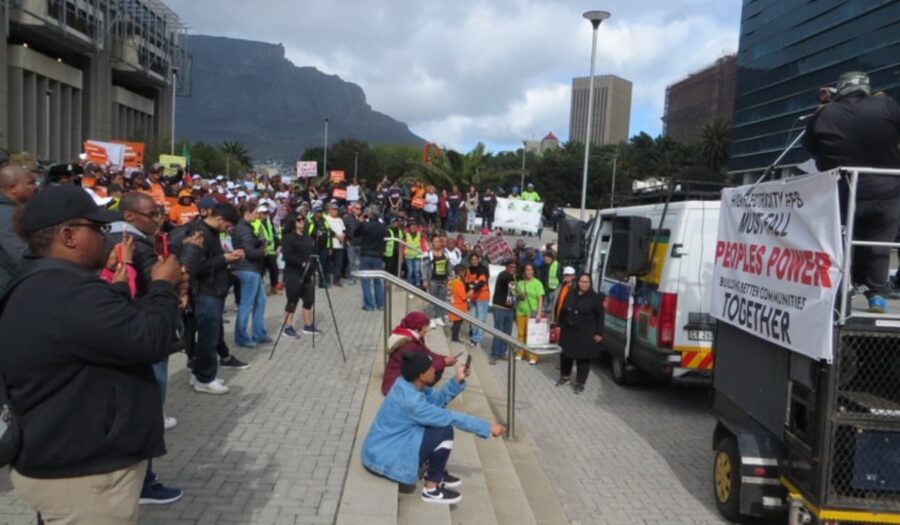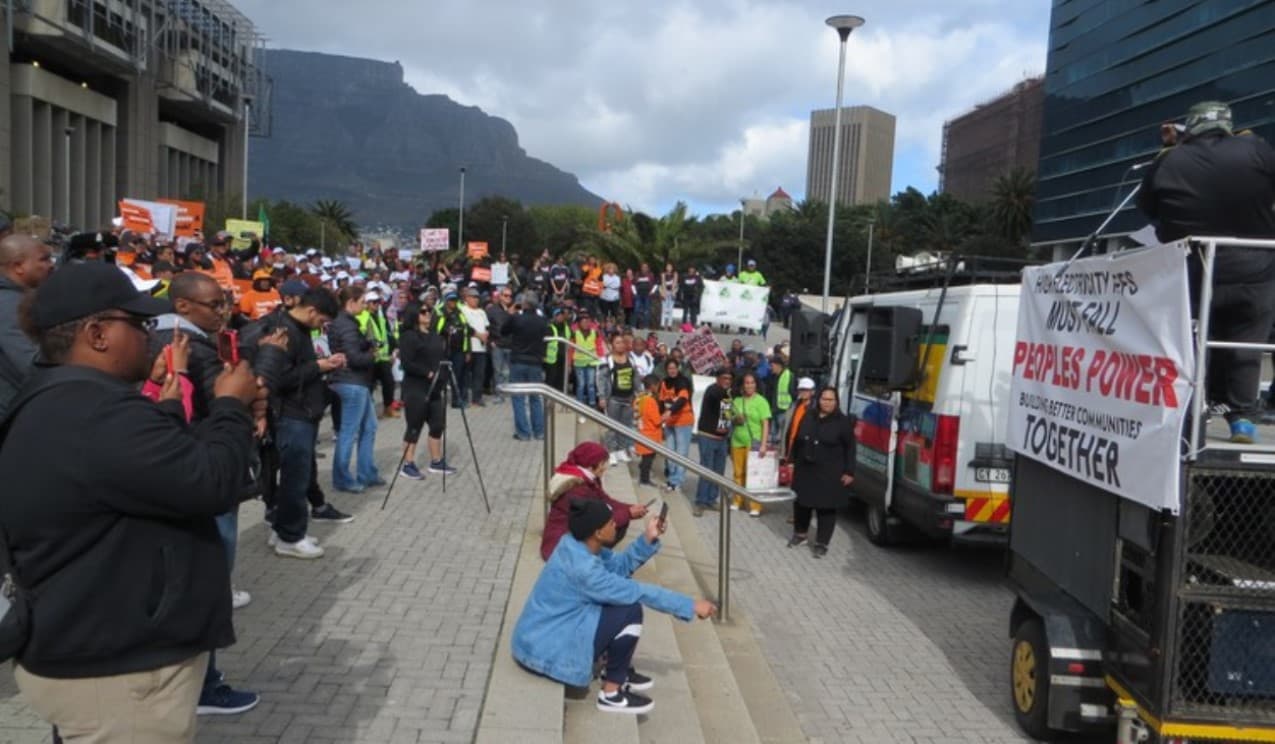
Cape Town households call for electricity tariffs to be reduced
City says NERSA’s 15% tariff recommendation would lead to a shortfall of R500-million for 2023/24

Nearly 17,000 people have signed a petition for the City of Cape Town to amend its 17.6% electricity tariff hike to the National Energy Regulator’s (NERSA)’s 15% figure.
- Scores of residents and civic groups protested outside the Civic Centre in the city centre on Saturday against ballooning electricity prices.
- They want the municipality to amend its 17.6% electricity tariff hike to NERSA’s 15% figure.
- Many people spoke about how the tariff hike has been negatively impacting their lives.
- The City says it has already reduced Eskom’s tariff of 18.5% to 17.6% for its residents.
- The City says that NERSA’s recommendation of 15.1% for municipalities would not be sustainable for Cape Town, and would lead to a shortfall in excess of R500-million for 2023/24 alone.
This comes as scores of residents and civic groups protested outside the Civic Centre in the city centre on Saturday against ballooning electricity prices.
They waved placards that read: “My R10 is just enough to boil eggs” and “I have no food due to high tariffs”.
Tariff Hikes
Peter Lonwabo, Cape Peninsula chair of the South African National Civics Organisation (SANCO), said social grant recipients are the worst affected by the tariff hikes.
“They go around the township begging for money to buy electricity ten days after they receive their grants. Some residents resort to connecting illegally or tampering with their boxes because they can’t afford to buy electricity,” he said.
Lonwabo said the City has a responsibility to provide free electricity to poor households, particularly those who survive on grants.
Joyce Malepu from the Gugulethu Women’s Assembly lives with her children and grandchild. They depend on her old age grant. “I have been battling to buy electricity since the day the tariffs shot up. I always worry that I will run out of electricity and keep on checking the number of units on my box.”
To save on electricity, Malepu now uses a paraffin heater to cook, but she says this blackens her pots.
Drop Electricity Tariffs
“The City must listen to our cry and drop electricity tariffs,” she said.
Christine Ngxanga said she often runs out of electricity and she and her son have to sit in the dark in their shack in Nyanga.
“When I switch off the lights to save electricity at night, my four-year-old son becomes frightened. When he asks why I don’t light the shack, I say mommy doesn’t have money for electricity,” she told GroundUp tearfully.
On days when she doesn’t have money for electricity, she uses a candle. “I worry that my kids and I may burn to death if I forget to put out the candle,” Ngxanga said.
According to the group’s memorandum, they want the City to take a household’s affordability into consideration when implementing tariff hikes.
“The City cannot see the public as a source of profit to fund their ambitious R70-million 2023/24 budget which benefits only a few,” read the memorandum.
Protesters also demanded that the City “remove the unregulated 37 cents added to each unit we buy and cease subsidising the rates department by taking 10% from electricity revenue”.
The memorandum, however, supported the removal of illegal connections and that electricity must be supplied and metered to all communities.
The group wants the City to respond by 2 September. Three officials from the City came out to sign the memo.
ALSO READ: 10 Tips on how South Africans can save on energy costs
In a statement on the weekend, the City said its electricity tariff “is a legal Council-approved tariff in terms of the Municipal Finance Management Act. The NERSA tariff methodology has been declared unlawful by two courts. Having approved an 18.5% Eskom hike, NERSA’s recommendation of 15.1% for municipalities is not sustainable for the City, and would lead to a shortfall in excess of R500-million for 2023/24 alone”.
“The City has been able to reduce Eskom’s 18.5% increase to 17.6% for residents, and is the metro offering the most comprehensive protection for subsidised lifeline customers while funding plans to end sole reliance on expensive Eskom power as soon as possible,” he said.
The City said that it was making “unprecedented investments” in electricity infrastructure maintenance and upgrades worth just under R4-billion over the next three years. “On service delivery, around 80% of electricity outages are fixed in under 3.5 hours for City-supplied electricity customers, and 99.9% of all faults are fixed within national Quality of Service timeframes,” the statement read.
